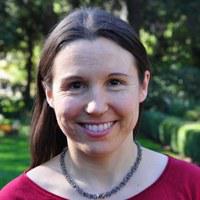We would all like to build classroom communities where our students flourish. We would like our students to develop their curiosity, creativity, critical thinking, persistence and resourcefulness. As science educators, what can we learn from the arts?
In improvisational theatre (“improv”), an “ensemble” is a group of people that work together cohesively and support each other to co-create a performance, recognizing and building upon each other’s individuality and contributions. For social learners, participation in an ensemble can foster our best learning. Can we create ensembles in our classrooms?
Parallels of Improv to Scientific Inquiry: from Stage to Classroom
The joy and power of scientific inquiry relies on creative exploration beyond what is familiar into the unfamiliar and strange. One way to integrate this delightful inquiry into physics courses has been developed and refined by Eugenia Etkina and collaborators through physics education research over the past 20 years. The approach, called the Investigative Science Learning Environment ( ISLE ), empowers students to participate in the creativity and joy of scientific discovery while learning introductory physics concepts. A key step in the ISLE learning cycle involves freely proposing creative possible explanations for observed phenomena without worrying that any idea might be too absurd. To maximize these teachable moments, we must listen carefully to students’ creative ideas without jumping to conclusions or imposing our models on them. Improvisational theatre offers a laboratory to develop listening skills and responsiveness to creative ideas.
Read the full story in OAPT Newsletter: http://newsletter.oapt.ca/files/Improv-PHYS-ation.html#unique-entry-id-314

